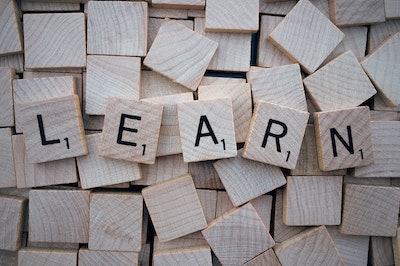
I’m reading Atomic Habits – just getting started. The first big idea of the book has to do with how and why habits are effective. James Clear, the book’s author, says that many (most?) times we start with desired outcomes when we want a change in our lives. We concentrate on losing weight or training for a 5K or quitting smoking. Clear says that we can change our behavior for a little while with this approach, but things get tough when we change our behavior and then…nothing…there are no results right away. Most change takes time and there is a period of work (often hard work) in which we see no change. Oftentimes we give up at this point. The author says that we should start from a different place – identity. If I see myself as a non-smoker (rather than a smoker trying to quit) I have an advantage. The behavior change I want to see is now part of who I am, not something I want to do.
Winning the School Game and real learning are not the same things.
I see parallels between learning and the growth mindset. It is all about our framing and our point of view. Students often get caught up in having their identity completely wrapped up in their grades or their “success” in a course or program. I use the term “students” deliberately. People who are good at the “school game” (i.e. getting good grades, testing well, etc) often view themselves as students (mostly because our educational system has taught them to do so). Winning the School Game and real learning are not the same things.
- Students study
- Students get tested
- Students do well on those tests
- Students win the school game
On the other hand, if I identify as a learner, everything changes. Learners get better. Incrementally. In fits and starts. At their own pace.
- Learners learn
- Learners try things
- Learners fail
- Learners learn from those failures
Now the whole point is learning. The point is no longer winning the school game. Learners have a growth mindset. Each test or experiment along the way is essential to the process but inherently low stakes. Each test for a student is high stakes. For a learner, a test is another way to learn. For a student, each test is the point.
Learners get better. Incrementally. In fits and starts. At their own pace.
We must design curricula for learners. We must walk alongside learners. We must be guides, facilitators, and fellow learners. We need to help people identify as learners and to kick the School Game habit.
